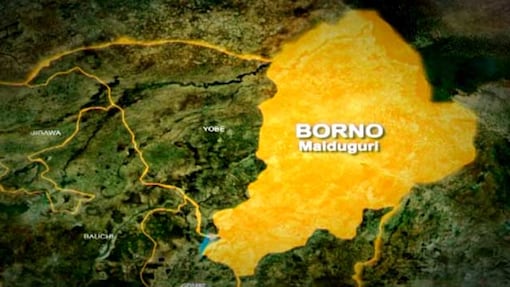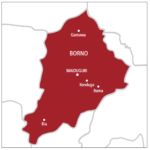When two professors took the oath of office as local government chairmen in Borno State last week, they became immediate celebrities, as it is unusual to find persons of their calibre stooping to stand for elections at that lower level.
Though Professors Adamu Alooma and Ibrahim Bukar won the contest unopposed in Damboa and Gwoza Local Government Councils, respectively, it did not draw away an inch from the uniqueness of their political foray. It is the first time in Borno and probably in the entire North, thus raising the bar henceforth, far up, for qualifications to such seemingly mundane positions.
- Borno attack: Vigilantes get surveillance vehicles
- Hundreds flee as insurgents attack 3 villages in Borno
We forget too soon. The media made the same furore when Professor Baba Gana Zulum was introduced as a candidate in the last governorship elections. It was also unusual for a state like Borno, one of those considered among the educationally-disadvantaged. Nevertheless, keen observers of the trend in the public service of the state would have noted the rising profiles of academics in the last many years. It all began in the last regime of Senator Kashim Shettima, then governor, who recruited wholesale from the University of Maiduguri, from where he picked the majority of the top echelon of the public service. And it was also from where he drew out Professor Zulum, first as Rector of Ramat Polytechnic and later as a member of the state executive council and finally as a gubernatorial candidate. And it would be reasonable to assume that Governor Zulum would take the same path of recruitment from his base, the university.
Professors Alooma and Bukar as local government chairmen would be travelling the well-trodden paths of attracting high-valued personalities to grassroots administration in Borno State. Many would recall that at the inception of this kind of local government administration in 1976, some former ministers particularly those who served in the Gowon regime went back to their local governments to contest elective post. That was the first local government election launching the Dasuki reforms and it was then contested on individual merit rather than on party basis. It was on that basis Shettima Ali Monguno a former Minister of Petroleum stood for and won election as the first Chairman Maiduguri Metropolitan Council. Nothing strange about this occurrence at that time.
Just 10 years earlier in 1966, at the demise of the First Republic, many ministers went back to take up administrative posts in their local governments, then named native authorities under the direct supervision of emirs and chiefs. To mention a few from the old Northern Region, Sule Gaya, Minister of Local Government and Umaru Babura, Minister of Social Welfare, all went back to Kano Native Authority and picked up appointments as councillors. Also, Ahmadu Fatika, Minister of Information went back to Zaria Native Authority as a councillor. Ibrahim Biu was also Minister of Water Resources and he moved back to Biu Native Authority as Senior councillor and head of administration. From the federal government, Inuwa Wada, Federal Minister of Works and later Defence went back to Kano Native Authority as Councillor of Works, and Musa Yar’Adua, Minister of Lagos Affairs became Chairman, Katsina Area Council.
Even then, Borno had always been at the forefront in attracting its high-quality technocrats to serve the native authority. Kashim Ibrahim was Federal Minister of Social Services when he was appointed in 1956 as the Waziri of Borno and head of administration of the native authority. He dutifully gave up the ministerial position for the native authority appointment. Earlier in 1954, Muhammadu Ngileruma had left the post of Northern Nigerian Minister of Natural Resources to serve as Waziri of Borno. Abba Habib was Minister of Trade and Industries and a high ranking official of the ruling party, the NPC, from where he resigned in 1959 to take up the post of Waziri of Dikwa. Similarly, much later in 1972, Abba Anas Baba Gana relinquished his post as Permanent Secretary, Ministry of Foreign Affairs to take up the post of Waziri of Borno and administrative head of the Native Authority.
That was the trend then, a fluid movement of public officers, seamlessly to and fro, the native authorities and other public services. However, all that was to change with the creation of states and the deteriorating financial conditions of local governments and what they became thereafter. Many of us graduates of mid-1970s never contemplated picking up jobs in the local governments. We rather joined the state and federal government institutions, educational institutions or the flourishing private sector.
Now that local governments are poised to become more independent of their state government supervisors and with the sure steps these Professors have taken, we hope more high-level professionals and technocrats would take interest in local affairs. We hope this interest in local affairs would not just stop at the higher rungs of the local governments, but will also percolate to other elective positions, such as supervisory councillors. We also hope that the political parties should be watching this development with keen interest and would be prepared to also throw up one or two professors as party functionaries. This would be one of the sure means of bringing expertise and administrative exposure to local governments, which should impact positively on governance at that level.

 Join Daily Trust WhatsApp Community For Quick Access To News and Happenings Around You.
Join Daily Trust WhatsApp Community For Quick Access To News and Happenings Around You.


